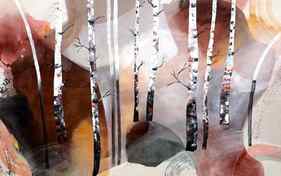Perhaps unsurprisingly given the events of the last year and a half, an optimistic sense of freedom united many of the collections coming out of Turkey’s second city – a melting pot of ideas where east meets west (quite literally – one half of Istanbul is in Europe, while the other, across the Bosphorus strait, lies in the western-most point of Asia). But not only that: the country is also in a state of flux when it comes to its political landscape and more specifically, the rights of women and the LGBTQ+ community. Much of what was on show – particularly when it came to the city’s younger designers – felt like a subtle response to this.
Overflowing dwelling vibrant females scenario
[Aside to SAMPSON] Say “better.” Here comes one of my master’s kinsmen.
[To SAMPSON so that only he can hear] Say “better.” One of our master’s kinsmen has just arrived.
[To ABRAHAM] Yes, better, sir.
[To ABRAHAM] Yes, my master is better than yours, sir.
Draw, if you be men.—Gregory, remember thy washing blow.
Draw your swords, if you’re men. Gregory, get ready to slash them.
[Draws his sword] Part, fools! Put up your swords. You know not what you do.
[He takes out his sword] Break it up, fools! Sheathe your swords. You don’t know what you’re doing.
What, art thou drawn among these heartless hinds? Turn thee, Benvolio. Look upon thy death.
What, have you drawn your sword to fight with servants? Turn around, Benvolio, and see the man who will kill you.
I do but keep the peace. Put up thy sword, Or manage it to part these men with me.
I’m just trying to keep the peace. Put away your sword, or else use it to help me stop this fighting.
What, drawn, and talk of peace? I hate the word, As I hate hell, all Montagues, and thee. Have at thee, coward!
You hold your sword drawn out, and say “peace?” I hate that word, just as I hate hell, all Montagues, and you. Now let’s fight, you coward!
They fight. Enter three or four CITIZENS, with clubs or partisans
BENVOLIO and TYBALT fight. Veronese CITIZENS enter, carrying clubs.
Clubs, bills, and partisans! Strike! Beat them down! Down with the Capulets! Down with the Montagues!
Beat them down with your clubs, spears, and axes. Hit them! Down with the Capulets! Down with the Montagues!
Enter old CAPULET in his gown, and his wife, LADY CAPULET
CAPULET, in his nightgown, and LADY CAPULET enter.
What noise is this? Give me my long sword, ho!
What is this noise? Give me my long sword. Now!
A crutch, a crutch! Why call you for a sword?
You need a crutch! Why are you calling for a sword?
Enter old MONTAGUE and his wife, LADY MONTAGUE
MONTAGUE, with his sword out, and LADY MONTAGUE enter.
My sword, I say! Old Montague is come, And flourishes his blade in spite of me.
Give me my sword, I said! Old Montague has arrived, and he’s waving his sword just to spite me.
Thou villain Capulet! Hold me not. Let me go.
You are a villain, Capulet! [LADY MONTAGUE grabs his arm] Let go of me. Don’t stop me.
Thou shalt not stir one foot to seek a foe.
You’re not taking one step to try to fight an enemy.
Enter PRINCE ESCALUS, with his train
PRINCE ESCALUS enters with his attendants.
Rebellious subjects, enemies to peace, Profaners of this neighbor-stainèd steel!— Will they not hear? —What, ho! You men, you beasts, That quench the fire of your pernicious rage With purple fountains issuing from your veins, On pain of torture, from those bloody hands Throw your mistempered weapons to the ground, And hear the sentence of your movèd prince. Three civil brawls, bred of an airy word, By thee, old Capulet, and Montague, Have thrice disturbed the quiet of our streets And made Verona’s ancient Citizens Cast by their grave-beseeming ornaments, To wield old partisans in hands as old, Cankered with peace, to part your cankered hate. If ever you disturb our streets again, Your lives shall pay the forfeit of the peace. For this time, all the rest depart away. You, Capulet, shall go along with me, And, Montague, come you this afternoon To know our farther pleasure in this case, To old Free-town, our common judgment-place. Once more, on pain of death, all men depart.
You rebels and enemies of the peace, who curse your own weapons by turning them on your neighbors.
[To himself] Can they not hear me?
[To the fighters] Silence! You men, you beasts, who can only put out the fire of your anger by spilling fountains of blood. I will torture you unless you drop your weapons from your bloody hands and listen to me, your enraged Prince. Because of nothing more than a casual word from you, Capulet and Montague, three battles have raged in our city’s streets. These battles have forced even Verona’s elderly citizens to take off their dignified clothes and jewelry and instead pick up old and rusty spears in order to put an end to your fighting. If any of you Capulets or Montagues disturb the peace in the future, you will pay for it with your lives. Now everyone go home. Capulet, you come with me in order to hear what else I want from you. Montague, you come this afternoon to old Free-town , where I deliver my judgments. Everyone else, leave this place right now, or I will have you killed.
Exeunt all but MONTAGUE, LADY MONTAGUE, and BENVOLIO
Everyone exits except MONTAGUE, LADY MONTAGUE, and BENVOLIO.
Who set this ancient quarrel new abroach? Speak, nephew. Were you by when it began?
Who stirred this old feud up again? Tell me, nephew. Were you around when the fight began?
Here were the servants of your adversary, And yours, close fighting ere I did approach. I drew to part them. In the instant came The fiery Tybalt, with his sword prepared, Which, as he breathed defiance to my ears, He swung about his head and cut the winds, Who, nothing hurt withal, hissed him in scorn. While we were interchanging thrusts and blows, Came more and more and fought on part and part, Till the Prince came, who parted either part.
Your servants were fighting Capulet’s servants when I arrived. I drew my sword to try to stop them. Just then, the reckless Tybalt showed up with his sword drawn. He taunted me while swinging his sword through the air, which made a hissing sound. As we fought, more and more Capulets and Montagues showed up to join the battle. Finally, the Prince came and stopped the fighting.
Oh, where is Romeo? Saw you him today? Right glad I am he was not at this fray.
Oh, where’s Romeo? Have you seen him at all today? I’m happy he wasn’t around for this fight.
Madam, an hour before the worshipped sun Peered forth the golden window of the east, A troubled mind drove me to walk abroad, Where, underneath the grove of sycamore That westward rooteth from this city side, So early walking did I see your son. Towards him I made, but he was ‘ware of me And stole into the covert of the wood. I, measuring his affections by my own, Which then most sought where most might not be found, Being one too many by my weary self, Pursued my humor not pursuing his, And gladly shunned who gladly fled from me.
Madam, my mind was troubled this morning, so an hour before dawn I went out for a walk. As I walked, I saw your son beneath the sycamore grove that grows near the western edge of the city. I walked toward him, but he noticed me and ran and hid in the woods. I assumed that he must be feeling the same way I was, and was looking for a place where he wouldn’t be found. So I continued on, following my own inclination to not pursue Romeo and ask him what was on his mind. I was happy to leave Romeo alone as he fled from me. Besides, I was feeling so weary of company that even being with myself was being with one too many people.
Many a morning hath he there been seen, With tears augmenting the fresh morning’s dew, Adding to clouds more clouds with his deep sighs. But all so soon as the all-cheering sun Should in the farthest east begin to draw The shady curtains from Aurora’s bed, Away from light steals home my heavy son, And private in his chamber pens himself, Shuts up his windows, locks fair daylight out, And makes himself an artificial night. Black and portentous must this humor prove Unless good counsel may the cause remove.
He’s been seen at that spot on many mornings, his tears adding to the morning dew and his deep sighs thickening the clouds in the sky. Then, as soon as the happy sun begins to dawn , my unhappy son comes home in order to hide from the light. He keeps to himself in his bedroom, shutting his windows to keep out the daylight so that he can sit in an artificial night. His bad mood is likely to have a bad result, unless someone can give him good advice and remove the cause of his sadness.
My noble uncle, do you know the cause?
My noble uncle, do you know what’s causing his mood?
I neither know it nor can learn of him.
I don’t know. And he refuses to tell me.
Have you importuned him by any means?
Have you done everything possible to get him to explain?
Both by myself and many other friends. But he, his own affections’ counselor, Is to himself—I will not say how true, But to himself so secret and so close, So far from sounding and discovery, As is the bud bit with an envious worm, Ere he can spread his sweet leaves to the air, Or dedicate his beauty to the same. Could we but learn from whence his sorrows grow. We would as willingly give cure as know.
I and many of our friends have tried to speak with him. But he insists on sharing his thoughts only with himself, though I don’t know how good the advice is that he’s giving himself. He keeps his secrets so completely that he’s like a flower bud that can’t open to the air or sun, because it’s been poisoned from within by the bite of a worm. If we could just find out the cause of his sadness, we’d try to help him as eagerly as we have tried to figure out why he feels sad.
See, where he comes. So please you, step aside. I’ll know his grievance or be much denied.
Here he comes. If you don’t mind, please leave us alone. I’ll make him either tell me what’s wrong, or else he’ll just decline to tell me over and over again.
I would thou wert so happy by thy stay To hear true shrift.—Come, madam, let’s away.
I hope you’re lucky enough to hear the true story. Come on, madam, let’s go.
Exeutn MONTAGUE and LADY MONTAGUE
MONTAGUE and LADY MONTAGUE exit.
Good morrow, cousin.
Good morning, cousin.
Is the day so young?
Is it still that early?
But new struck nine.
The clock has just barely struck nine.
Ay me! Sad hours seem long. Was that my father that went hence so fast?
Oh, my! Time goes by slowly when you’re sad. Was that my father who just rushed away?
It was. What sadness lengthens Romeo’s hours?
It was. What sadness is making Romeo’s hours so long?
Not having that which, having, makes them short.
Lacking the thing which would make the hours short if I had it.
Are you in love?
So you’re not in love?
Out of her favor, where I am in love.
I am in love. But the one I love does not love me back.
Alas, that love, so gentle in his view, Should be so tyrannous and rough in proof!
Oh, it is sad how love, which in theory seems like such a gentle thing, should in actual experience be so rough!
Alas, that love, whose view is muffled still, Should, without eyes, see pathways to his will! Where shall we dine? —O me! What fray was here? Yet tell me not, for I have heard it all. Here’s much to do with hate but more with love. Why then, O brawling love, O loving hate, O anything of nothing first created! O heavy lightness, serious vanity, Misshapen chaos of well-seeming forms! Feather of lead, bright smoke, cold fire, sick health, Still-waking sleep, that is not what it is! This love feel I, that feel no love in this. Dost thou not laugh?
How can love, which is supposed to be blind, force you to be able to do what it wants? Where should we eat? [Noticing blood] Oh my goodness, what fighting happened here? No, don’t tell me. I already know: it was something that had a lot to do with hate, but even more to do with love . Oh, fighting love! Oh, loving hate! Oh, love that originates from nothing! Oh heavy lightness! Serious frivolity! Beautiful shapes smashed together to create an ugly chaos! Love is like heavy feathers, bright smoke, cold fire, sick health, waking sleep, the opposite of what it is! That’s the love I feel, since no one loves me in return. Are you laughing?
No, coz, I rather weep.
No, cousin—I’m crying instead..
Good heart, at what?
But why, my good man?
At thy good heart’s oppression.
Because of the way love has oppressed your heart.
Why, such is love’s transgression. Griefs of mine own lie heavy in my breast, Which thou wilt propagate, to have it pressed With more of thine. This love that thou hast shown Doth add more grief to too much of mine own. Love is a smoke raised with the fume of sighs; Being purged, a fire sparkling in lovers’ eyes; Being vexed, a sea nourished with loving tears. What is it else? A madness most discreet, A choking gall, and a preserving sweet. Farewell, my coz.
That’s how it it goes with love. My own sadness is a heavy weight on my chest, and now you’re going to add your own sadness to mine. The love you are showing me is only increasing my grief. Love is like a smoke made out of the sighs of lovers. When the smoke clears, love is a fire burning in the lovers’ eyes. But if that love is thwarted, then it is a sea made out of lovers’ tears. What else is love? A wise madness. A sweet candy that makes you choke. Goodbye, my cousin.
Soft! I will go along. And if you leave me so, you do me wrong.
Wait! I’ll come with you. If you leave me behind, you’ll be insulting me.
Tut, I have lost myself. I am not here. This is not Romeo. He’s some other where.
Oh, I’m not acting like myself. It’s as if I’m not even here. This is not Romeo, he’s somewhere else.
Tell me in sadness, who is that you love.
Tell me, seriously, who is the one you love?
What, shall I groan and tell thee?
What? Should I cry out the name in a groan of sadness?
Groan! Why, no. But sadly, tell me who.
Groan?! Why, of course not. Just tell me who it is.
A sick man in sadness makes his will, A word ill urged to one that is so ill. In sadness, cousin, I do love a woman.
You wouldn’t ask a sick man to “seriously” write out his will—it would only make him feel worse. Seriously, cousin, I do love a woman.
I aimed so near when I supposed you loved.
I figured that out when I guessed you were in love.
A right good markman! And she’s fair I love.
Then you have good aim! And the woman I love is beautiful.
A right fair mark, fair coz, is soonest hit.
My dear cousin, a beautiful target is usually the one that is hit fastest.
Well, in that hit you miss. She’ll not be hit With Cupid’s arrow. She hath Dian’s wit. And, in strong proof of chastity well armed From love’s weak childish bow, she lives uncharmed. She will not stay the siege of loving terms, Nor bide th’ encounter of assailing eyes, Nor ope her lap to saint-seducing gold. Oh, she is rich in beauty, only poor That when she dies, with beauty dies her store.
Well, now you missed the target. She won’t be hit by Cupid’s arrow. She’s like Diana , protected by the armor of chastity. She is immune to the weak and childish arrows of love. She ignores words of love, refuses to even let you look at her with loving eyes, or open her lap to receive golden gifts that would even tempt a saint. Oh, she’s rich in beauty. But she’s also poor, because when she dies her beauty will die along with her.
Then she hath sworn that she will still live chaste?
So she’s sworn to live her life a virgin?
She hath, and in that sparing makes huge waste, For beauty, starved with her severity, Cuts beauty off from all posterity. She is too fair, too wise, wisely too fair, To merit bliss by making me despair. She hath forsworn to love, and in that vow Do I live dead that live to tell it now.
She has, and in doing so she wastes her beauty, because by living in chastity she ensures that she will never pass her beauty on to her children. She’s too beautiful, and too smart, to be allowed to gain entrance to Heaven by making me despair. She’s sworn never to love, and in that vow has sentenced me to a kind of living death.
Be ruled by me. Forget to think of her.
Listen to me. Stop thinking about her.
O, teach me how I should forget to think!
Oh, then teach me to forget how to think!
By giving liberty unto thine eyes. Examine other beauties.
By letting your eyes wander. Take a look at other beautiful girls.
‘Tis the way To call hers exquisite, in question more. These happy masks that kiss fair ladies’ brows, Being black, puts us in mind they hide the fair. He that is strucken blind cannot forget The precious treasure of his eyesight lost. Show me a mistress that is passing fair; What doth her beauty serve but as a note Where I may read who passed that passing fair? Farewell. Thou canst not teach me to forget.
Such comparisons will only make her own beauty more obvious. It will be like the masks that pretty girls wear to hide their faces. When they hide their beauty, they make us think of it more. A blind man can’t forget the precious eyesight he lost. Show me any beautiful girl. What good is her beauty, other than a reminder of a girl who is even more beautiful? Goodbye. You can’t teach me to forget.
I’ll pay that doctrine or else die in debt.
I’ll teach you how to forget, or else I’ll die owing you the lesson.
Previous
Prologue
Next
Act 1, Scene 2
Cite This Page
Annotation
Close
Save time. Stress less.
 PDF downloads of all 1807 LitCharts literature guides, and of every new one we publish.
PDF downloads of all 1807 LitCharts literature guides, and of every new one we publish. Detailed quotes explanations with page numbers for every important quote on the site.
Detailed quotes explanations with page numbers for every important quote on the site. Teacher Editions with classroom activities for all 1807 titles we cover.
Teacher Editions with classroom activities for all 1807 titles we cover. PDFs of modern translations of every Shakespeare play and poem.
PDFs of modern translations of every Shakespeare play and poem. Definitions and examples of 136 literary terms and devices. Instant PDF downloads.
Definitions and examples of 136 literary terms and devices. Instant PDF downloads. Refine any search. Find related themes, quotes, symbols, characters, and more.
Refine any search. Find related themes, quotes, symbols, characters, and more.
 PDFs of modern translations of every Shakespeare play and poem.
PDFs of modern translations of every Shakespeare play and poem. Definitions and examples of 136 literary terms and devices. Instant PDF downloads.
Definitions and examples of 136 literary terms and devices. Instant PDF downloads. Refine any search. Find related themes, quotes, symbols, characters, and more.
Refine any search. Find related themes, quotes, symbols, characters, and more.
BERFIN ÖZGÜR
Berfin Özgür had no intention of studying fashion. It wasn’t until she enrolled on a fine art course at one of Turkey’s most prestigious schools that she realised the power of the medium. “I never felt connected to high fashion particularly – I just didn’t think I could express myself fully through it,” she explains. “When I started experimenting with clothing and fabrics, though, I began to understand its capacity to get my message across.”
Considering herself more a purveyor of anti-fashion than someone’s who’s going to be sending couture collections down the runway any time soon, Özgür’s inspiration for her graduate offering came by way of doomsday documentaries found on late night rabbit hole-dives into the deepest corners of YouTube. Entitled DOOMSTERS, the line rehashes the utilitarian uniform adopted by conspiracy theorists – think multi-pocketed gilets punctuated with clips and carabiners, overblown combat pants, and functional knits bearing slogans including “punk planet”. Essentially, it’s clothing for the end of the world – which Özgür reveals she one day hopes to see slowthai wearing.
ERCAN TENEKECIOĞLU
The world may be more divided than ever right now – politically, financially, and ideologically – but Ercan Tenekecioǧlu’s was all about “loving ourselves and loving each other”. With lockdown forcing the young designer into an extended period of introspection, he began thinking about self love, and what truly loving oneself would mean for humanity and the ways in which we then treat others. This idea manifested in a light-as-air collection, Soul Seeker, which saw diaphanous chiffon wound around the body as part of artfully twisted, long-sleeved tops, romantically draping dresses, and calf-skimming skirts.
A more heavyweight foil to the barely-there pieces came in the form of skewed and spliced tailoring, with wide, angular jackets that split at the seams to reveal slashes of shoulder matched with louche, high-waisted trousers. The optimistic feeling that’s stitched through the fabrics of the offering reveals Tenekecioǧlu’s own post-COVID mood. “For me, Istanbul has emerged from lockdown brighter and more inspiring than ever,” he explains. “I can’t wait to see the creativity that bursts out of it in the coming months and years.”
ÖYKÜ ECE UZA
Citing Iris Van Herpen as “one of the most incredible designers working today”, Öykü Ece Uza is all about innovation. With her eyes sharply focused on sustainability within fashion, the IMA graduate weaves her own fabric in a bid to keep waste at a minimum, and uses natural dyes including pineapple and beetroot juice to bring her collections to life. The garments themselves balloon from the body like living organisms, with pumped-up sweater vests in bold shades of Yves Klein blue and vibrant saffron matched with wide-legged, textured flares and cosy quilted leg warmers.
Though Uza has yet to figure out exactly how to make her creations commercially viable (“Every piece is made by hand and takes a really long time to finish”), right now she’s considering joining a fashion house to gain more experience in running a successful fashion business. Could a stint at Iris Van Herpen’s Amsterdam studio be on the cards for the young designer? Watch this space.





